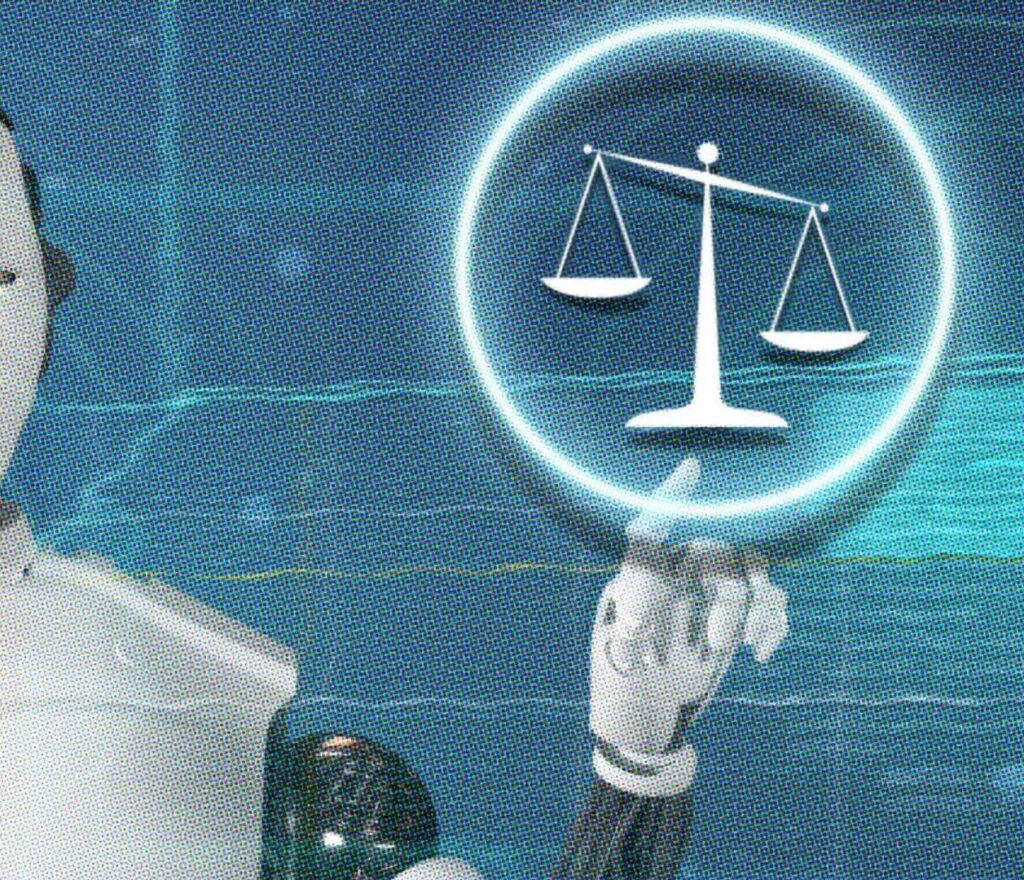
Google is expanding the functionality of YouTube Shorts by integrating Google Lens, enabling visual search within Shorts. Find out more here. ... Continue reading
| 01 min |


| 04.03.2025 | 03 min |
Artificial intelligence has become an indispensable part of our (office) lives. It automates processes, analyzes data and supports decision-making in many areas. Similar to the PC, it will become an integral part of our daily work. The growing importance of AI is also reflected in the 2024 Nobel Prizes, which recognize achievements that would not have been possible without AI-based research and research on AI.
The AI Legal Day hosted by Digital Beat focused on key legal issues. Experts from various fields highlighted the challenges and regulations that are relevant for companies and developers. Topics such as copyright, data protection, regulation and the use of chatbots were discussed in detail.
Dr. Dominik Herzog, a specialist lawyer in media law, among other things, explained the copyright consequences of using AI to create content. The crucial question is to what extent an existing work is used as a basis and whether it has been significantly modified.
If an AI creates an image or text based on an existing work without significantly modifying it, the original copyright remains in place. In such a case, the consent of the copyright holder is required to use or publish the new work.
A specific example was shown using a work of art created by a female artist. This version was compared with a variant generated by DALL·E. Since the AI image showed significant changes and was not directly recognizable as a derivative of the original, copyright does not apply in this case. Such distinctions are crucial as AI-powered creativity is increasingly being used for commercial purposes.
Christian Solmecke was also a guest and explained the data protection requirements for the use of AI and analyzed the 15-page orientation guide of the Data Protection Conference (DSK).
Companies must clarify a number of questions when using AI:
A particularly critical point is the question of whether an AI should be allowed to make decisions about people. In sensitive areas, such as application procedures or granting loans, it is imperative that a human being makes the final decision.
Another point of discussion is the security of open systems compared to cloud solutions. Companies must be aware of the infrastructure they use for AI applications. In addition, it must be ensured that deletion rights are maintained. Removing personal data from large language models (LLM) poses a significant technical challenge. One possible solution could be to use filters to prevent unwanted data use.
Data protection officers should be involved in the development and use of AI processes at an early stage.
Thomas Klußmann presented practical use cases for the data protection-compliant use of AI in data analysis. One example was the use of spreadsheets with an AI connection to automatically evaluate customer surveys and feedback.
It was shown how ChatGPT can be integrated into existing spreadsheets to efficiently analyze large amounts of data. An extension like GPT for Sheets or integration via a script makes it possible to structure survey results and feedback. The crucial point here is that no personal data such as names or addresses are included. The analysis must be limited to anonymized data only.
Moritz Gielen, a specialist lawyer in data protection law, presented the EU AI Act, which defines clear guidelines for the use of artificial intelligence. Companies that develop or use AI-based systems must adhere to certain principles.
The AI Act will have a significant influence on the future development of AI applications. Companies need to address the new regulations at an early stage to minimize legal risks.
Another topic was the use of chatbots, which are increasingly being used for customer communication. They can interact with users both in writing and by phone.
botpress.com has summarized important key figures about chatbots:
It is important that the user always recognizes that they are communicating with an AI. Transparency is an essential factor here to ensure trust. Companies use chatbots specifically to automate processes and make customer service more efficient.
The AI Legal Day showed that the legal framework for the use of artificial intelligence is constantly being developed. Companies must deal intensively with copyright, data protection, regulation and the use of AI-supported systems in order to meet legal requirements. Various consultants are available to help avoid legal risks and use AI responsibly, whether it be a specialist lawyer, a training company or a data protection officer.
Patricia Unfried is part of the Content Outreach team at eology. Your tasks include key account management, consulting and project management for international key clients. Besides her task as team lead for the area of quality assurance, the graduate in German and English writes expert articles on the latest SEO topics.
You want to learn more about exciting topics?
